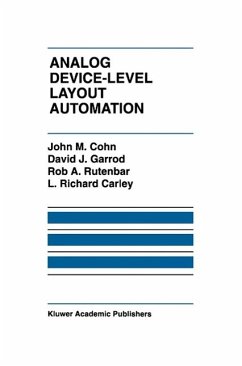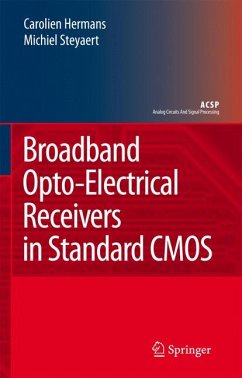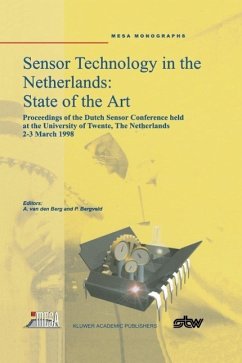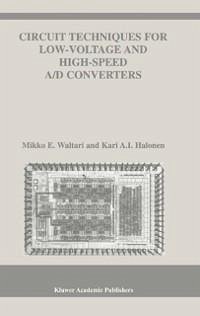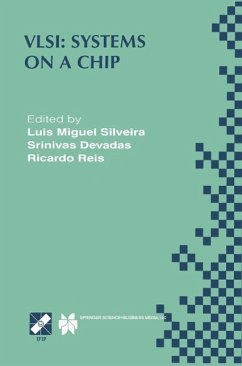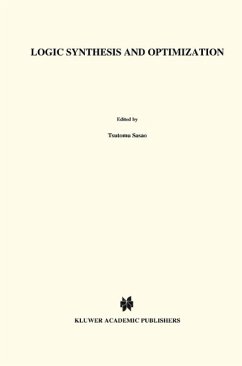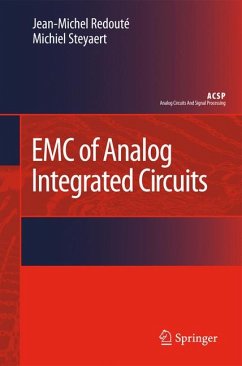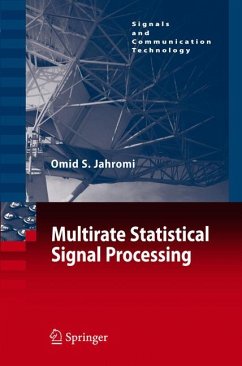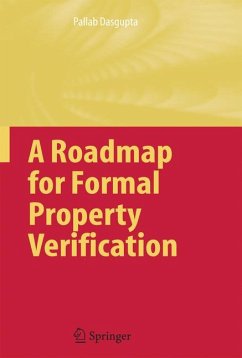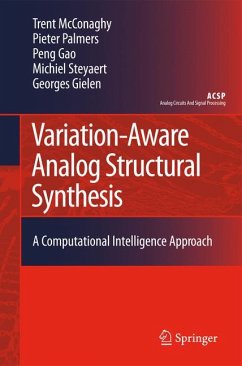
Variation-Aware Analog Structural Synthesis (eBook, PDF)
A Computational Intelligence Approach
Versandkostenfrei!
Sofort per Download lieferbar
112,95 €
inkl. MwSt.
Weitere Ausgaben:

PAYBACK Punkte
56 °P sammeln!
This book describes new tools for front end analog designers, starting with global variation-aware sizing, and extending to novel variation-aware topology design. The tools aid design through automation, but more importantly, they also aid designer insight through automation. We now describe four design tasks, each more general than the previous, and how this book contributes design aids and insight aids to each. The ?rst designer task targeted is global robust sizing. This task is supported by a design tool that does automated, globally reliable, variation-aware s- ing (SANGRIA),and an insigh...
This book describes new tools for front end analog designers, starting with global variation-aware sizing, and extending to novel variation-aware topology design. The tools aid design through automation, but more importantly, they also aid designer insight through automation. We now describe four design tasks, each more general than the previous, and how this book contributes design aids and insight aids to each. The ?rst designer task targeted is global robust sizing. This task is supported by a design tool that does automated, globally reliable, variation-aware s- ing (SANGRIA),and an insight-aiding tool that extracts designer-interpretable whitebox models that relate sizings to circuit performance (CAFFEINE). SANGRIA searches on several levels of problem dif?culty simultaneously, from lower cheap-to-evaluate "exploration" layers to higher full-evaluation "exploitation" layers (structural homotopy). SANGRIAmakes maximal use of circuit simulations by performing scalable data mining on simulation results to choose new candidate designs. CAFFEINE accomplishes its task by tre- ing function induction as a tree-search problem. It constrains its tree search space via a canonical-functional-form grammar, and searches the space with grammatically constrained genetic programming. The second designer task is topology selection/topology design. Topology selection tools must consider a broad variety of topologies such that an app- priate topology is selected, must easily adapt to new semiconductor process nodes, and readily incorporate new topologies. Topology design tools must allow designers to creatively explore new topology ideas as rapidly as possible.
Dieser Download kann aus rechtlichen Gründen nur mit Rechnungsadresse in A, B, BG, CY, CZ, D, DK, EW, E, FIN, F, GR, HR, H, IRL, I, LT, L, LR, M, NL, PL, P, R, S, SLO, SK ausgeliefert werden.



